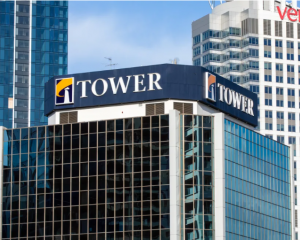JB Were, which in 2010 described the New Zealand capital markets as being in a state of structural decline, said the Government's mixed ownership model could put them back on a path of self-sustaining growth.
The Australian and New Zealand wealth management company, which is 80.1 per cent owned by the Bank of New Zealand's owner, National Australia Bank, and 19.9 per cent by Goldman Sachs, said the Government's partial privatisation programme would represent "a significant step forward for NZ Inc".
JB Were strategist Bernard Doyle said the sharemarket's relevance had declined over the last decade or so.
Today, the market represents about 30 per cent of GDP compared with about 60 per cent in the mid 1990s.
In the decade ending in 2010, the annual average number of floats was four, compared with eight in the previous decade, when the size of the floats tended to be bigger. Today's average market turnover averages about $70 million, about the same as in 1997.
Over the comparative periods, average daily turnover on the ASX has gone from A$1billion to A$5b.
Doyle said a steady flow of new issues was important for the maintenance of a vibrant capital market.
"Why is that important? It's not to keep investment bankers happy - it's to keep up with the normal rate of attrition that you get with companies either being taken over hitting the skids," Doyle told APNZ. "In any market, not just New Zealand's, you need a flow of new companies to keep it fresh."
Fund managers expect to see strong interest in the mixed ownership companies - power generators Mighty River Power, Meridian and Genesis Energy and coal company Solid Energy. The Government also intends to sell down its three-quarter stake in the NZX-listed Air New Zealand.
"Our analysis suggests pent-up demand for quality equity offerings amongst local investors - with up to $5b of potential demand simply from a re-weighting of household assets back to mid-1990's levels of domestic equity ownership," Doyle said in a research note.
Public asset sell-downs generally have had a good track record for investors, he said. Privatised companies such as Contact, Telecom and Auckland International Airport have gone on to become the backbone of the New Zealand sharemarket.
In 2010, JB Were said its concern was that the New Zealand equity market had become a poor vehicle for facilitating savings behaviour, and the current lack of initial public offers, waning international investor interest and poor market liquidity were indicative of a market in structural decline.
Doyle said if households expanded their proportion of equity ownership back to mid-90s levels, this alone would create $5b of new demand for equities.
"Without a partial sell-down of state-owned enterprises, the New Zealand equity market would probably continue to struggle for relevance and critical mass," he said.
"With that as a backdrop, we view the introduction of the mixed ownership model as a significant step forward for NZ Inc," he said.
The Treasury has estimated that extending the mixed ownership model to five companies would raise $5-$7b.
First New Zealand Capital working with Credit Suisse Australia, Macquarie Capital New Zealand and Goldman Sachs New Zealand are the joint lead managers for this year's Mighty River Power sale, which is expected to happen in September.












